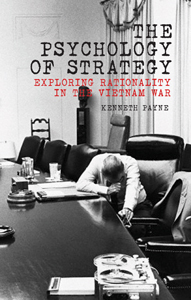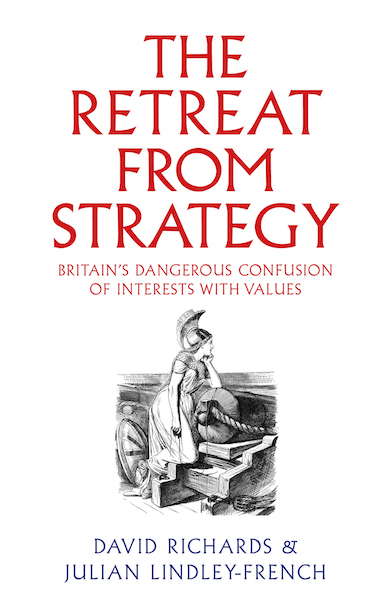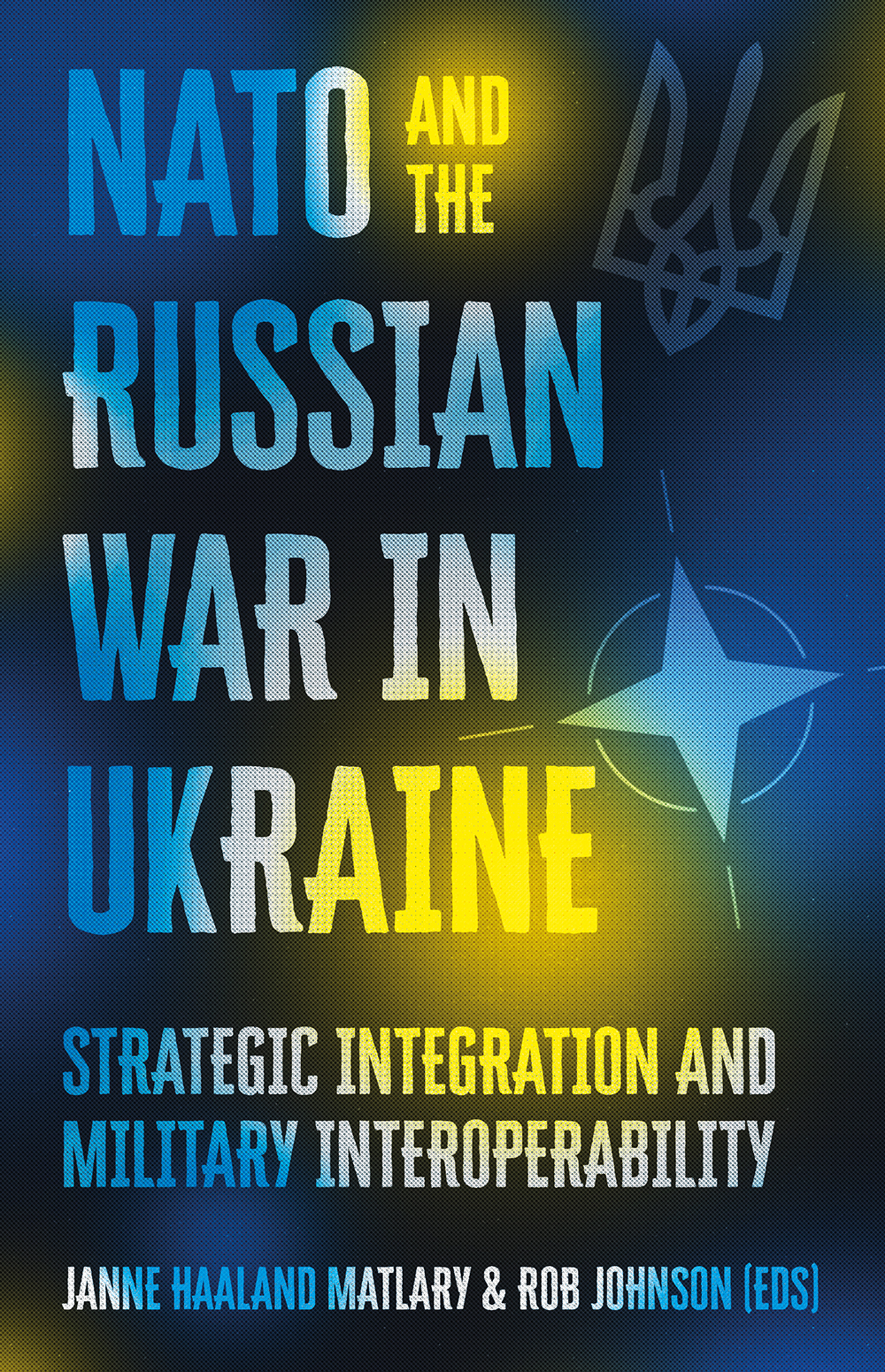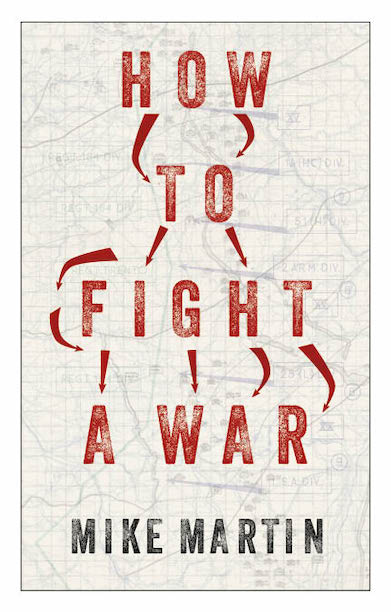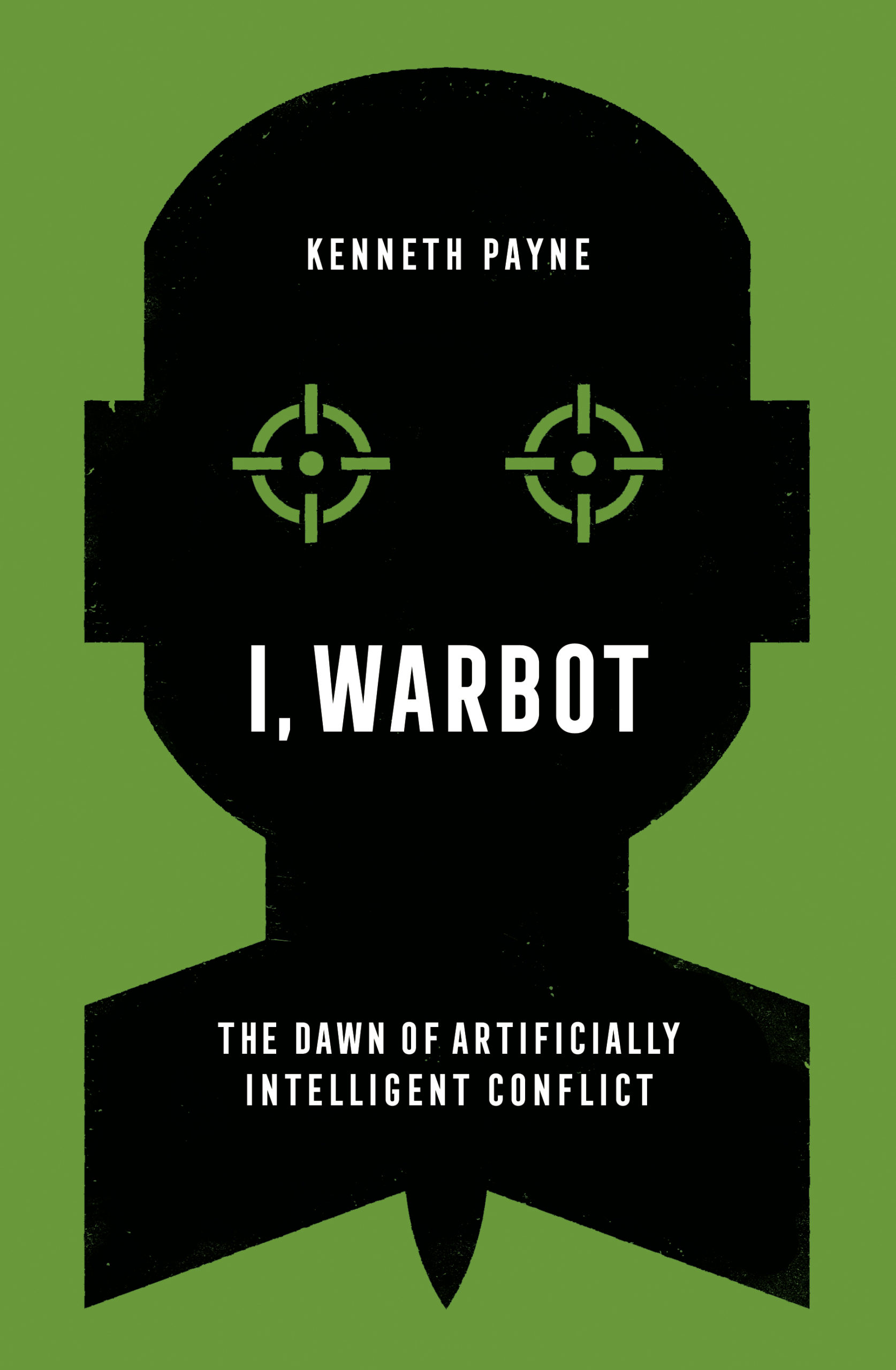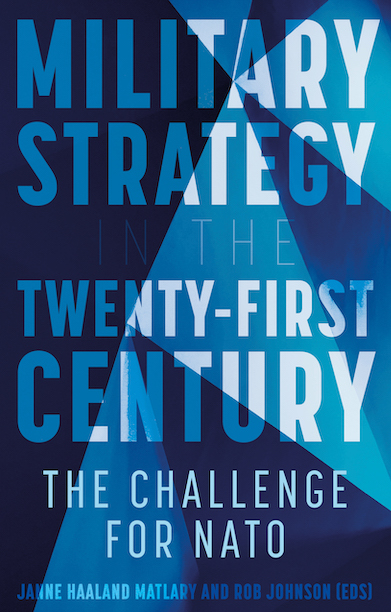The Psychology of Strategy
Exploring Rationality in the Vietnam War
Drawing on emotional, evolutionary and social psychology, Payne explores the strategic behaviour of key political and military actors in the Vietnam War.
Description
How do strategists decide what they wish to achieve through war, and how they might accomplish it? And why does their understanding of violence regularly turn out to be wrong? In seeking answers to these questions Kenneth Payne draws on the study of psychology to examine strategic behaviour during the Vietnam War. He explores the ways in which cognitive biases distort our sense of our own agency and our decision-making, arguing that much of the latter is emotional, shaped by unconscious processing and driven by a prickly concern for social esteem.
The Nixon and Johnson administrations both proved susceptible to the processes that are familiar to students of modern neuroscience and psychology, but perhaps less appreciated within strategic studies. US strategists in the Vietnam era miscalculated in ways that would surprise rational theorists, but not evolutionary psychologists: they exaggerated the stakes, embraced risky and overly optimistic solutions, and failed to appreciate the limits of force to shatter the enemy’s resolve. Their concern for reputation led to escalation, based on a flawed conception of what such escalation could achieve.
The Vietnam conflict provides an excellent illustration that war is an inherently psychological phenomenon. This challenges abstract notions of rationality in strategic affairs, suggesting that the strategists –– much like the rest of us –– are strangers to themselves.
Table of contents
1. Introduction — Strategy as psychology
2. The genius of command
3. Social identity in war
4. Honour, revenge and reputation
5. Shock versus the social network
6. Risk and the fog of war
7. Memory and myth
8. Conclusion — On strategy and atonality
Reviews
‘Payne makes a strong case that a psychological approach to understanding strategic behaviour can inform both historical understanding of and responses to contemporary threats to national and international security … The author’s inventory of biases that can lead to unwise decision-making will be of particular value to those who inform national-security decision-making.’ — Survival
‘Kenneth Payne uses an intriguing blend of Clausewitz, international relations and contemporary psychological research to illuminate key episodes in the Vietnam War while challenging rational actor accounts of strategy.’ — Lawrence Freedman, author of Strategy: A History
‘This is the best book on strategy since Clausewitz. Like his Prussian predecessor Payne weaves together history, theory, psychology and uncertainty into a rich intellectual fabric which should appeal to scholars, military officers and policymakers alike.’ — Ned Lebow, Professor of International Political Theory, King’s College London
‘Armed conflict is a clash of wills, a violent effort often to change other’s minds. Fluently, pithily and precisely, Kenneth Payne delves into the psychology of strategy. His study powerfully taps into the unconscious drives of rulers as they wade further into wars they only partly comprehend. Payne’s judgements will not attract universal agreement, but his study offers an important infrared lens to decision makers as they struggle to know themselves.’ — Patrick Porter, Professor of Strategic Studies at the University of Exeter; author of The Global Village: Distance, War and the Limits of Power
‘Kenneth Payne’s fascinating and engaging book reveals how emotion and psychology influenced U.S. strategy during the Vietnam War. The Psychology of Strategy is indispensable reading for security experts, historians, and anyone interested in using psychology to better understand conflict.’ — Jonathan Mercer, Professor in Political Science, University of Washington
‘In a series of thematic essays, Payne weaves in the influence of emotions, social identity and concern for honor on strategy, combining Clausewitz with insights from cognitive and social psychology — punctuated with numerous vivid examples from the Vietnam War. This highly original book raises new issues about America’s traumatic experience in Vietnam, with relevance for contemporary asymmetric conflicts. His use of psychological findings to explain killing in war is powerful, adding a human dimension that is missing from rationalistic accounts.’ — Deborah Welch Larson, Professor of Political Science, University of California, Los Angeles
Author(s)

Kenneth Payne is a reader in International Relations at King’s College London. A former BBC journalist, he is the author of many articles and books, including The Psychology of Strategy: Exploring Rationality in the Vietnam War, also published by Hurst.
